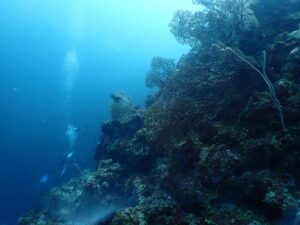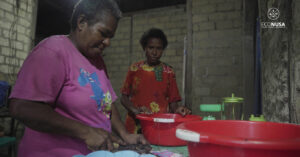
Adaptability to cope with relatively rapid change is the major prerequisite of community resilience. This is very important to survive in uncertain situation like the current Covid-19 pandemic today. The absence of such adaptability, a community will be vulnerable and even worse when primary resources such as food are hardly accessible.
Unfortunately, half of 34 provinces across Indonesia has poor food security. The condition is reflected from the publication of the Central Statistics Agency (BPS) in March 2019. Quoting Kompas (6/5/2020), the allocation of average spending per capita for food is higher than that of non-food spending. East Nusa Tenggara, Aceh, Papua, North Sumatera and West Sulawesi are deemed the provinces with the lowest level of food security.
INSIST researcher, Ahmad Mahmud, said that the various policies made for community food security are far from effective. On contrary, based on research, more than 200 villages in and outside Java Island, Ahmad found that there was no village that could suffice the need for food to the community.
“Moreover, in some villages, there have been accumulation of some complications on food, clean water and the likes,” said Adhmad in an online discussion on “Building Community Resilience” held by EcoNusa Foundation on Monday 4 May 2020.
Researcher of Rural Technology Development Institution (LPTP) Surakarta exemplified the transformation happened in Klaten Regency, Central Java Province. Long before the independence of Indonesia, Klaten had become food security buffer region. At the time, Klaten was also deemed the most fertile region in Asia. Klaten was widely famed by the rice production. But, as time went by, the land for cultivation has been reduced in size.
“When I conducted a comprehensive research in 2012, the condition has changed. In one of the villages, there were only 80 hectares (of paddy fields) left. Half of that size did not belong to the local people. I think there has been little amount of land left in nearly all regions in Java that cultivate food crops to meet the local need for food,” Ahmad said.
The changing community resilience also happens to Samo Village, Gane Barat Utara Sub-district, South Halmahera Regency in North Maluku Province. Making use of non-timber forest products and plantation, the local community could meet their primary needs. PakaTiva Director, Faizal Ratuela, said that the vulnerability of Samo Village happens due to the entering investment of Production Forest Concession (HPH).
“The arriving HPH investment since 1989 has opened forest that serves as the source of life to Samo peoples. They took forests products, and this transformed the villagers’ way of life in Samo Village,” said Faizal.
According to Faizal, the incoming investment has changed the way people manage plantation. Samo peoples only plant yearly vegetations such as coconut, nutmeg, cloves and cocoa. On the other side, they do no more planting seasonal crops such as paddy and tuber. It happened due to the fact that they work for HPH corporation and seasonal plants that need extra care. Then, cow distribution from South Halmahera Regency Government failed to help them. The absence of capacity building for husbandry with the cows are setting free in fact damaged the plantation crops.
HPH has caused environmental degradation. As to Faizal, the community of Samo has never had any flooding. But after 2000s, North Maluku was flooded. “The entering HPH has caused flooding that among others hit Samo,” said Faizal.
Since 2019, the community of Samo Village and PakaTiva have made a collaboration to put back space and farming in place to meet the local needs. During the Covid-19 pandemic, Samo Village has built their own adaptability. They do not merely rely on food supply from Java and Sulawesi. “Field paddy has become their sources of food and thus they do not spend any fund to afford rice,” Faizal added.
Muddin Hasyim, a local farmer of Samo Village, is the living example of community’s food resilience. He cultivates paddy on 50 x 50 meters of land. Thanks to the paddy crop, Muddin could save his cost up to IDR550,000 per month to afford rice and vegetables. He no longer sells nutmeg just for rice. “I can now save my money. The harvested nutmeg is not sold for rice,” he said.
Editor: Leo Wahyudi




